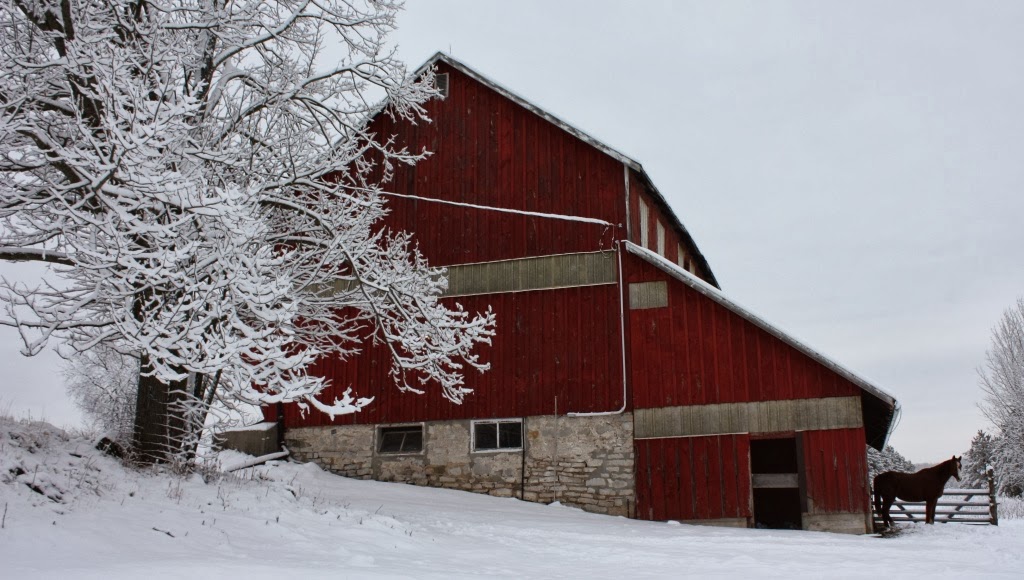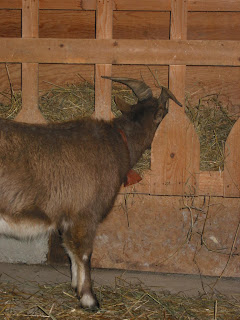I always thought a dog was supposed to be man's best friend but it seems here at Rowangarth Farm, a rafter of roaming wild turkeys has us beat.

Henry is an one-year-old Australian Shepherd who has an innate need to herd things. He's tried herding the kids, the cats, the donkeys and other visiting canines. He chases squirrels on our walks, with the intent of herding them I joke, but he always comes back empty-pawed but no less discouraged.
So earlier today, when about 20 wild turkeys came gobbling out of the pine grove between the ponds, it came as no surprise that his herding instinct kicked into overdrive. He took off like a rocket across the field but we eventually called him back with a couple of dog treats and our sing-songy, "Here puppy puppy, come here boy, that's a goooood boy, Henry" punctuated by under-our-breath curses that would have made a sailor blush.
Thinking the excitement was over, and that one of us had an eye on the dog, I went back inside the house while Lucas went into the barn.
I'd barely sat down at my desk when Lucas came running in. "Henry's gone," he said. "He took off over the ridge after those turkeys."
We knew that dogs and rural living isn't without risk: he could run off and get lost, get hit by a car or shot by a hunter. We've even contemplated invisible fencing. But ever since moving here, Henry's always seemed to have a reasonable head on his shoulders and I chalked it up to that expensive puppy school training paying off.
Then those wild turkeys changed everything.
I bolted outside like a crazed madwoman, calling his name. Henry's always come back, I reasoned. He's just just on his way back from the woods. But this time, there was nothing. No thrashing around. No galloping paws. Just complete silence (well, except for my hollering.)
I ran down our gravel road hoping to catch a glimpse of him (or the marauding turkeys) on the main road. Thankfully, none of our neighbours drove by as I'm sure it would have cemented our assumed reputation as the silly city-folk. He was nowhere to be seen.
So what's a near-hysterical girl to do when faced with a pet crisis? Jump on an ATV and go careering around our property, screeching his name. There was some method to my madness as I thought I'd either, a.) find him and entice him to drop the turkey-chasing and run after me or b.) scare off all the local wildlife so any nearby hunters wouldn't have anything to aim at (I was terrified they'd mistakenly shoot Henry.)
Again, returning to the house empty-handed, I was faced with the thought of life without my trail companion, child minder, donkey herder and foot warmer.
Granted Henry may not always be the most agreeable dog. Since moving to the farm, he's taken up a number of less than desirable hobbies, such as rolling in donkey poop, wading in ponds and bogs and digging in the compost pile, among other places.

But he's also our constant companion, a gentle clown with our kids, mother hen to our kittens, amusement to our donkeys and from his nighttime post in the hallway, he keeps an eye on all of us as we sleep .


Thankfully, I didn't have to contemplate life without a dog for long. As Lucas pulled up in the pick-up truck (he had a little more sense than I did and decided to go search for him along the road) he pointed to our lane way. There was Henry: coated in mud up to his belly wearing a look on his face that was part intoxication, part confusion. He was obviously tired, panting heavily and limping slightly. But he'd come home.
"Stupid dog," I said between sobs, taking his head in my hands and squeezing.
After a quick cleansing swim in the pond (something of an oxymoron, I know) and some treats in our front hall, he seemed no worse for wear.
I, however, learned a few valuable lessons. Firstly, maybe it's time to look into that invisible fencing. Secondly, given a choice between Milk Bones and wild turkeys, the Milk Bones don't stand a chance.
And lastly, and perhaps most importantly, maybe Henry needs an on-farm job after all. Given the choice between watching his own flock of sheep* or chasing turkeys, I'm hoping the woollies will win every time.
* Disclaimer: Yes I know and totally respect/understand that herding sheep is an art and that dogs must be trained for years before becoming skillful herders. I also know that I can't expect an untrained Aussie to be a particularly effective sheep herder. Henry doesn't know that though.
 This time leading up to December feels a lot different out here in the country.
This time leading up to December feels a lot different out here in the country.


.JPG)



































